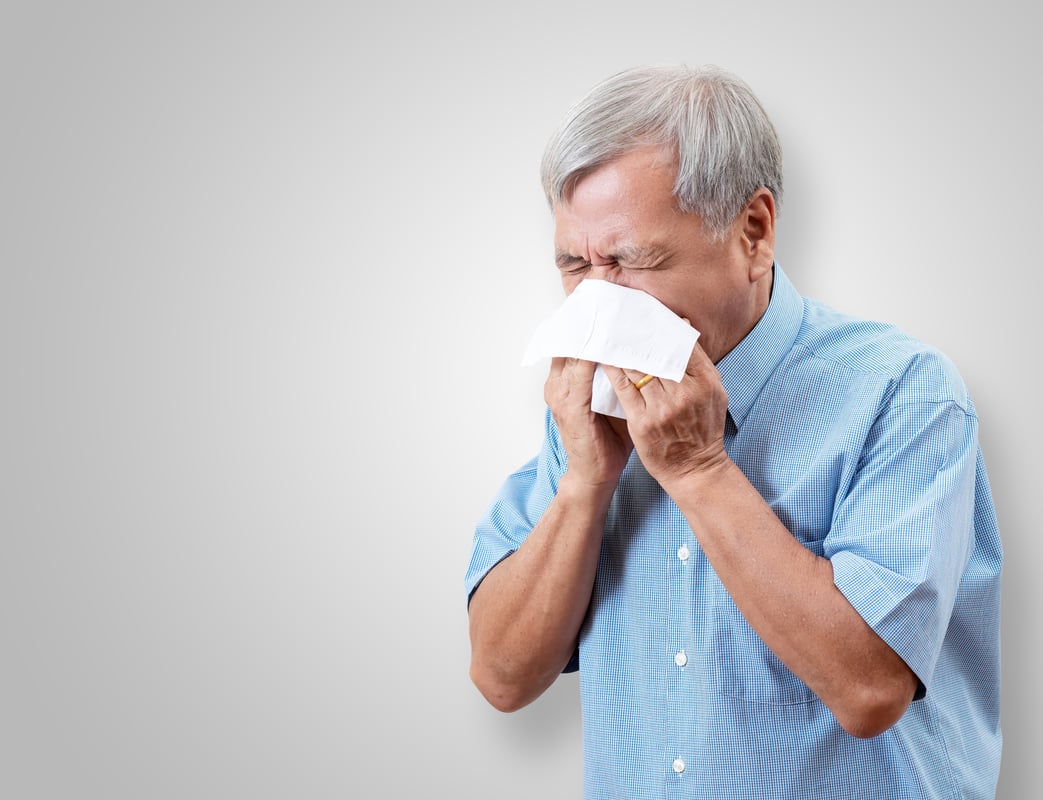Influenza (Flu): What It Is, Causes, Symptoms & Treatment

Influenza strikes millions every year, causing symptoms such as cough, fever, aches and a sore throat.
Learn more about what the flu is, including its causes, symptoms and treatment.
What is influenza (flu)?
Influenza, commonly known as the flu, is a highly contagious respiratory disease, states the National Institute of Allergy and Infectious Diseases (NIAID).
Every year, the flu kills thousands; it's particularly dangerous for people who are very young or very old, or who have other health conditions such as heart disease or asthma.
What causes the flu?
Flu is caused by influenza viruses, says the U.S. Centers for Disease Control and Prevention. The annual seasonal flu is caused by influenza viruses type A and type B.
Flu symptoms
The most common flu symptoms, as reported by the American Lung Association, include:
- Chills
- Cough, a dry cough
- Diarrhea
- Fatigue (extreme tiredness)
- Fever that is high and comes on suddenly
- Headache
- Joint pain
- Muscle aches
- Nasal congestion
- Nausea
- Runny nose
- Sore throat
- Vomiting
How long does the flu last?
Usually, the flu lasts between four and seven days. The CDC notes that babies and those with weakened immune systems could have it for a longer period of time.
How long is the flu contagious?
You can give the flu to someone else before you have any symptoms. That’s one of the reasons why it spreads so quickly and easily, notes the CDC. Even if you’re a healthy adult, you could be contagious a day before you experience symptoms and as many as seven days after you get sick.
When is flu season?
The flu season in the United States starts sometime in the late fall and can last through the end of May, states the American Academy of Pediatrics.
Flu treatments
There are four antiviral drugs recommended by the CDC to treat the flu.
- Oseltamivir phosphate (Tamiflu and generic)
- Zanamivir (Relenza)
- Peramivir (Rapivab)
- Baloxavir marboxil (Xofluza)
Flu medicines
There are also over-the-counter medications available. They include:
- Acetaminophen
- Ibuprofen
- Cough expectorants
- Cough suppressants
Flu self-care tips
You could recover faster if you practice these self-care tips, recommended by the Cleveland Clinic:
- Heating packs on aching muscles
- Rest
- Stay hydrated
Is there a flu shot available?
It’s important to remember that the flu can be very serious. You could wind up in the hospital, and people with the flu or with complications of it can die.
There is a vaccine for the flu. According to Yale Medicine, what the flu vaccine does is:
- Reduce the risk of illness
- Reduce the risk of hospitalization
- Reduce the risk of death
It’s vital to get the flu shot every year because which influenza viruses are circulating most widely changes every year. Each year, the vaccine is customized to target the strongest strain.
Flu shot side effects can include:
- Fatigue
- Fever
- Headache
- Muscle aches
- Nausea
- Redness where you received the shot
- Soreness where you received the shot
- Swelling where you received the shot
Living with the flu
Living with the flu is usually short term. If you or your child have flu symptoms for longer than a couple of weeks, that may be cause for concern and you should contact your doctor. See your doctor immediately, advises the American Lung Association, if you experience:
- Chest pain from coughing
- Difficulty breathing
- Phlegm you cough up that’s yellow, green or bloody
Pediatric infectious diseases specialist Dr. Thomas Murray, of Yale Medicine, urges parents to pay attention to:
- Breathing trouble
- Dehydration
- Low urine output (a symptom of dehydration)
“If you have any concerns, call your pediatrician,” Murray advised in a recent Yale article. “And if a child who has flu starts to feel better and then suddenly gets worse, call your provider right away because sometimes they can have a bacterial infection after influenza.”
In the United States, the flu is the most common infectious disease. Around 20 to 40 million people get it each year. Practice self-care, says Cleveland Clinic, and get some medicine to help you get through it.
Resources:
American Academy of Pediatrics: RSV, Flu & COVID: How Are These Respiratory Illnesses Different?
American Lung Association: Flu Symptoms, Causes, and Risk Factors
Cleveland Clinic: You Think It’s the Flu – Now What Should You Do?
U.S. Centers for Disease Control and Prevention: About Flu
U.S. Centers for Disease Control and Prevention: What You Need to Know
National Institute of Allergy and Infectious Diseases: Influenza
Yale Medicine: Influenza (Flu)
Yale Medicine: The Flu Is Back: Here's How To Get Through It
Related Posts
Black Children Less Likely to Receive Diagnostic Imaging at ED Visit
TUESDAY, June 7, 2022 (HealthDay News) -- Black children consistently are less...
AHA News: Fear and Language Barriers Keep Some Latino People From Performing CPR
THURSDAY, June 1, 2023 (American Heart Association News) -- At a CPR class in...
Health Highlights: Feb. 23, 2022
Can micro-dosing LSD help your brain? Maybe not: New research shows that the...
‘COVID-somnia’ May Be Easing as Americans Report Better Sleep
MONDAY, Dec. 5, 2022 (HealthDay News) -- Finally, more than two years into the...
